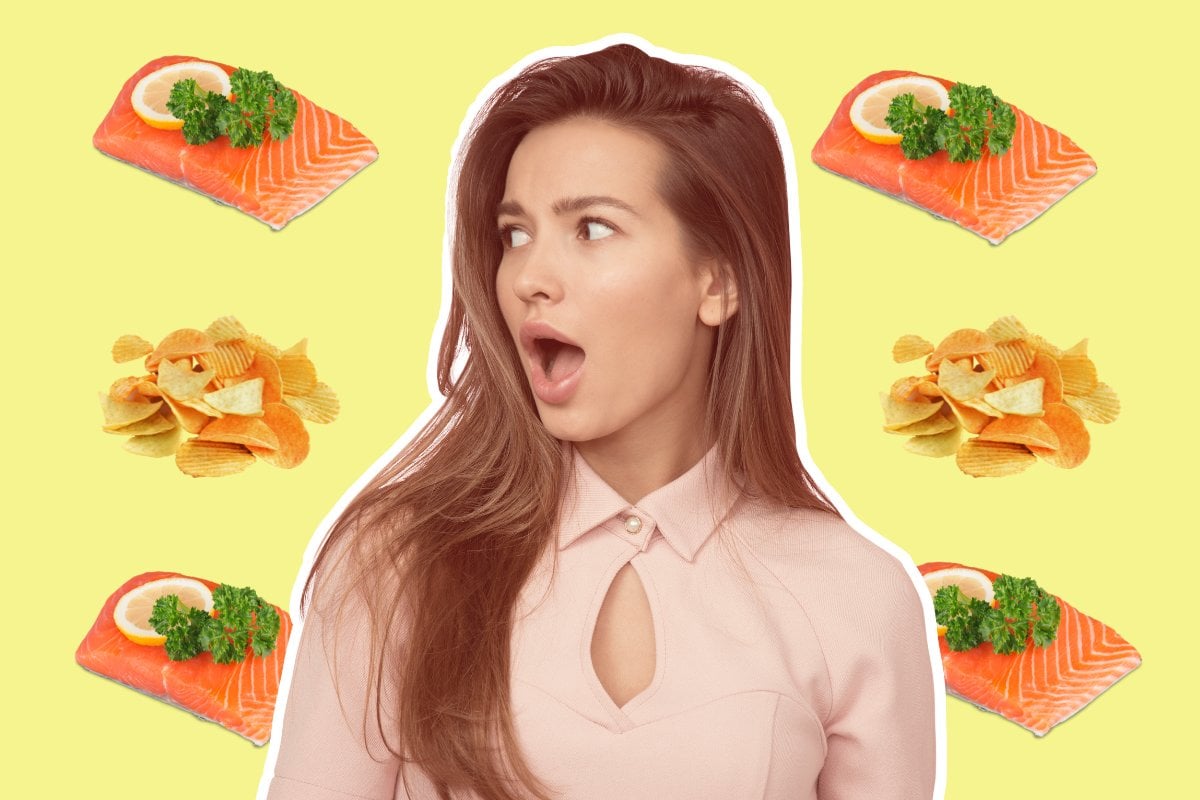
You know that moment after you pick up something off the supermarket shelf, and just before you drop it in the trolley, where you ask yourself: Do I really need this?
According to a new report, it's a question we're asking ourselves more and more as we deal with the cost-of-living crisis. And the food most likely to go first? Meat with over 60 per cent of Aussie adults cutting it from their diets to save money.
Makes sense. A quick Google search for meat at both Coles and Woolworths shows a small pack of chicken breast starts at $7.80 and a steak starts at $8.
While you can get a can of tuna for as little as $1.10 or tofu for $2.50.
Watch: How to make 21 meals for under $100. Post continues after video.
Not only are people cutting back on meat, but according to the research conducted by Compare the Market, 58 per cent of Australians are spending less on chocolate and lollies.
44 per cent of people aren't buying savoury snacks anymore and another 43 per cent are done with soft drinks for the time being. (We've seen the price of a case of canned Coke. We don't blame you.)
Worryingly, a quarter of Australians are also cutting back on fruit and vegetables.

Top Comments